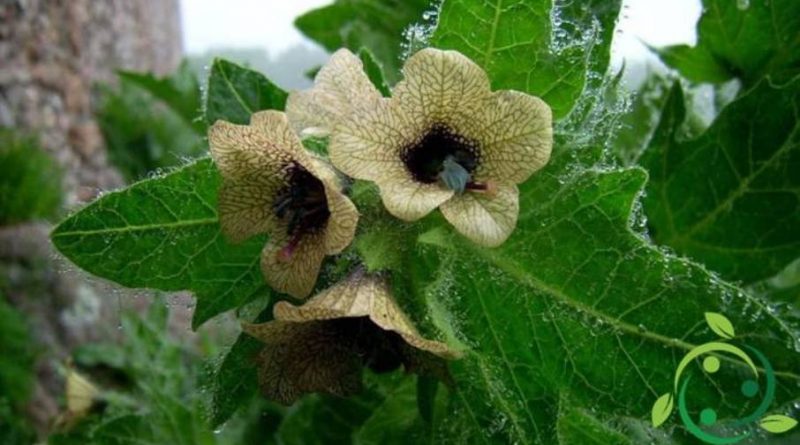Properties and uses of the Black Henbane
Properties and uses of the Black Henbane
Il Giusquiamo nero (Hyoscyamus niger L.) is a poisonous, annual or biennial species of the Solanaceae family. It is a plant that in the past has been used for its pharmacological effects. In this sheet we will see properties and uses of the black Jusquiamo but also its dangerousness. It is in fact a rather rare species but excluded from the herbal use for its toxicity, as it is characterized by the presence of atropine alkaloids, in particular of scopolamine, which has become famous for being used as anticinetic against seasickness and drive away.
It is also known as porcina fava or, with the most dialectal terms, such as pilingella, apollinaria, grass from sores, cassilage, tooth de vecia, cungarelle, crowd de opus.
This plant has a stem that can reach the maximum height of one meter, characteristic for the presence of silky and viscous hairs, which give it a whitish color. The root is fusiform and long, with different ramifications and the leaves are also hairy, ovate and pennatifide. The flowers are in terminal spikes with a mottled yellow color of purple veins. The corolla is campanulata with 5 very evident lobes. The fruit is a capsule with numerous seeds that protrude from a circular opening. These are small, dark and, like many other seeds, of a kidney-shaped shape.
The plant can be grown mainly with the two-year variety, as it is larger and more developed than the annual one, which has leaves, few flowers and fruit. In its first year the two-year variety produces only leaves; in the second year also flowers and fruits grow. It is a species that prefers soils with a light granulometry (sandy) but rich in organic substances; for this reason, at the beginning of the spring it is good to make an organic fertilization that gives a good structure to the soil and a balanced reserve of nutritive elements. During the summer it must be watered constantly so that the soil never gets too dry and hard.
Nitrogenous fertilizations must be avoided as they soften the plant which is so much more subject to insect attacks and in particular of the dorifera.
For the harvest we proceed by cutting the apexes of the plant that represent the summits. You can proceed by hand or by means of appropriately set machines. If they have to collect the seeds, they proceed with the selection of the ripe fruits and only then, in a suitable place, they are separated and sent to work.
The drug of the jus in the Italian Official Pharmacopoeia is the dried leaves, with or without the presence of the flowering tops; in some cases seeds are also used.
The main active ingredients of Black Henbane are alkaloids; L-josciamina, josciamina, atropine and scopolamine. These last two alkaloids by hydration are broken down into tropic acid and swirls. Also present are: a bitter eteroside called joscipicroside, an ethereal oil, ascorbic acid, choline, stearin, starch, gum and mucilage as well as a series of salts such as calcium, potassium and magnesium.
Il Giusquiamo nero is also used for the preparation of anti-asthmatic cigarettes. In fact, the spasmolytic action of the smooth muscle is also performed at the level of the bronchi, thus attenuating the asthmatic spasms. Other uses, as mentioned, are those as anticinetic for seasickness. In this sense we use the skills of scopolamine, a famous molecule because it is the main active ingredient used to pass motion sickness, or seasickness, or car sickness. Incorporated in chewing gum or dermal patches, scopolamine prevents or causes nausea due to car, ship, train and plane movements.
In any case, the products based on this plant, for their toxicity, should be used only after consultation and medical prescription. For this reason, the black henbane is a plant not to be used as a home remedy; in fact it is included in the list of plants prescribed only by doctors and its sale is possible only in pharmacies. Furthermore, its use in food supplements, including herbal products, is prohibited. In case of poisoning by giusquiamo we have symptoms similar to those caused by Belladonna.
In antiquity and in the Middle Ages this plant had the reputation of magic grass and was used as a narcotic or to favor rain.

